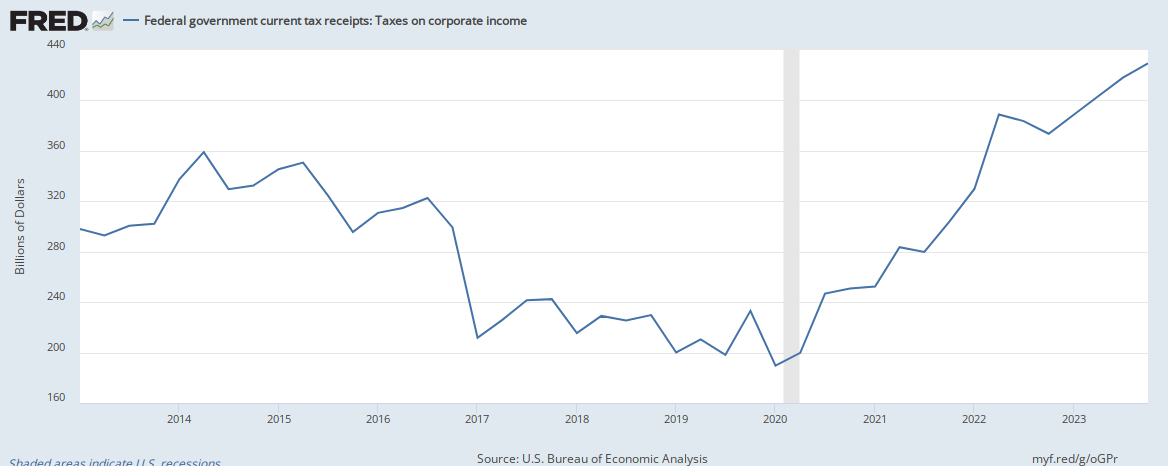- Joined
- Mar 27, 2014
- Messages
- 63,629
- Reaction score
- 33,660
- Location
- Tennessee
- Gender
- Male
- Political Leaning
- Undisclosed
shrug...
I'm not pretending anything. The factual data shows that the government took in more revenue AFTER the tax reform than before it.
I suggest you spend more time looking at the facts than trying to rationalize it when the facts are inconvenient.
Well, you are pretending or illogical. You're asserting that tax cuts are actually tax increases.
If you want to claim the TCJA increased revenue, then you have to know two things:
1) What would tax revenue have been under old law? This is the baseline, what we'd have collected with no change in tax policy.
2) Actual tax revenue collected post TCJA.
Compare them.
You're establishing a baseline, illogically, of $0 in growth in nominal tax revenues. Why did you pick a baseline of $0 in growth? If we didn't have TCJA, in a growing economy, with positive inflation, why would we expect tax revenue year over year to remain at the same amount, show growth of $0? We wouldn't, of course, we'd expect tax revenue to grow with inflation and growth in wages and taxable profits for businesses. Look at a revenue table here:
Access Denied
Pick any one you want and you'll see a consistent trend (outside of recession years) of revenue growing every year, because that's what we should expect with a growing economy and inflation. That growth trend is, in the simplest of terms, the baseline. You insist but cannot support a position that the proper baseline is $0 in growth....


